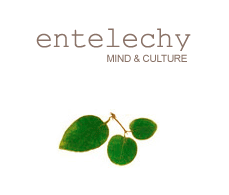
|
|
 |
summer/fall 2007 no. 9
editors
contributors
links
about
back
issues
home
EDITOR'S MUSING
Evolutionary Tao?
by Tim Horvath
When Alice coined the term “evolutionary tao” for this latest issue, my gut reaction was, Hmmm, catchy, but what does it really mean? I’m still not sure I know what it means, but as soon as I mouth the words, I feel them start to spar with one another, vying for something. What? A fundamental view of nature? Indeed, nature in an evolutionary perspective offers up a rather different template for joint-cutting than does Taoist nature. Randomness and natural selection are decidedly different forces from yin and yang, the dynamic tensions traced by Taoism. What they share is a perpetual flux, but the differences appear to be more salient than the common ground.Still, maybe in spite of their foreignness to one another, maybe because of it, the juxtaposition of these words and ideas is worth pondering. Both terms are adept at mingling with other words, attaching themselves readily in the agora of ideas, altering whatever they come into contact with. Thus we get Evolutionary Politics, The Tao of Physics, Evolutionary Game Theory, The Tao of Sex, The Evolution of Morality, The Tao of Pooh, and so forth. Evolution and Tao might be said to be not merely words and ideas, not merely memes. What, then? At a recent conference on the neurosciences and the humanities, John Hunter of Bucknell described Andy Clark’s work in cognitive science as enabling, trying to capture the way it reaches out into every field and radically transforms the way work in that field is conducted, stimulating new approaches to existing problems. The same might be said of evolution and tao, enablers of the new, however ancient each one is.
Is evolution an inherently Western concept the way in which Taoism appears to have an intrinsically Eastern character? Or, is it the other way around — ought Taoism be deemed universal along the same lines that evolution can be said to have universal reach? I don’t have the answers to these questions, however interesting they may be.
The question I do want to address, and one I think I’m closer to suggesting an answer to, is how such pairings can give old problems freshness, lucidity. For the sake of argument, I’ll oversimplify tao, “the way,” and its thousands of years of tradition, and limit it to the way opposing forces can coexist in a balance fraught with tension, which in turn gives the whole a dynamic quality. We might, then, look at men and women through both evolutionary and Taoist lenses. For the evolutionary psychologist, mate selection is the crux of male/female relationships, and everything from parasite defenses to jealousy, from waist-hip ratio to displays of wealth, is tied to the lifelong odyssey of attracting, securing, guarding, a mate or mates. That sounds a good deal thornier and more complex than good old yin and yang
— and far more difficult for a tattoo artist to render! Yet might it be possible to introduce into this discussion the concept of balance without shirking scientific rigor? Faced, for instance, with the ongoing struggle between short-term and long-term mating interests, often sharply at odds with one another, might one seek a harmonious interplay of the two? It’s certainly worth thinking about.Are dynamic tension and interplay just metaphors? Well, if cognitive linguistics has taught us anything, it’s that calling something “just a metaphor” might be missing the point. For years, right brain and left brain were presented in pop psychology clothing as opposites, possessing as much scientific underpinning as earth/water/air/fire, Aries and Pisces. Yet over a decade of neuroscience, spearheaded by people like Mark Beeman and Christine Chiarello, indicates that in fact the right hemisphere and left hemisphere do appear to process language, for one, in different ways — at the very least at different rates, and quite possibly with different semantic agendas, the left being more precise and the right being more “coarse.” Moreover, given lesion and neuroimaging studies, along with tests involving split visual field tasks, the right hemisphere appears to be preferentially engaged in phenomena like detecting sarcasm and irony, drawing inferences, understanding figurative language, and so forth. So, does the dichotomy of right brain and left brain hold? Yes, the answer would appear to be, but with giant caveats
— in a much more nuanced sense, and only in the messy, utterly complicated way that natural selection confers upon organs and organisms. And maybe, just maybe, this is a snapshot of what evolutionary tao might look like.
Copyright © 2007 Entelechy: Mind & Culture. New Paltz, NY. All rights reserved.